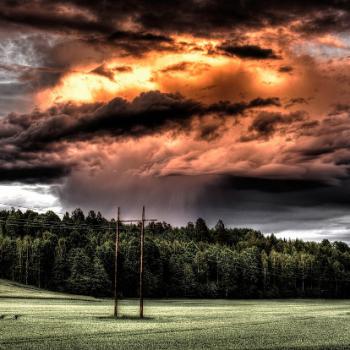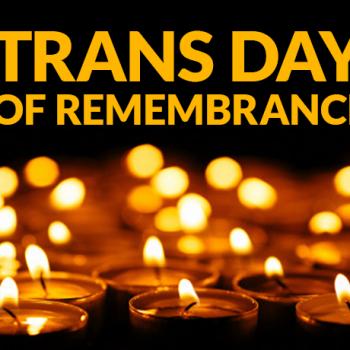
What is cancel culture?
Cancel culture–or as some have put it, a new way to describe consequences–is when people decide that they are done with a particular individual or group of individuals. This happens based on one or more instances of inappropriate and/or problematic behavior. In my mind, if there were actually significant consequences to people’s behavior as appropriate, we wouldn’t need cancel culture. People would face the results of their words and/or actions and be done with it. Boycotting events, places, groups, and organizations also falls under the concepts of “cancel culture” and deplatforming.
Okay, how about deplatforming?
One can argue that “deplatforming” is a form of cancel culture, and one that works. Instead of tolerating Milo Yiannopoulos’ Nazi crap, various online and offline platforms booted him. Now he complains about being broke and losing fans. In this instance, deplatforming clearly works. Remove the alt-right/Nazi individuals from polluting air space and frequently committing what could adequately be described as stochastic terrorism, and you have what amounts to consequences. They cease to make money, have influence, and create an environment where their ideas are acceptable.
Now we have one less Nazi convincing others that these ideas are socially acceptable. We don’t need to continue to reward people for their bad behavior. Just get rid of their soapboxes and support others who speak against them.
When “tolerance” and “free speech” goes too far
It’s very true that sometimes these things can either go too far or overreactions can occur. But I would sincerely hope in clear cut instances such as bigotry and allegiances to neo-Nazi/alt-right organizations and philosophies we should have a no tolerance zone. After all, the tolerance of intolerance leads to the death of tolerance within our own communities. This goes for literally any community and since we are humans living in this society with these issues, they will spill over. And it would be a huge mistake in judgment to treat such individuals as missing stairs.
The pagan, polytheist, and occult communities have been downright infamous for passing over abusive individuals for the sake of “harmony”. I suspect much of this is rooted in the idea that our communities are often small. In such small spaces, we can’t afford to lose or cancel people too soon or too quickly. But in cases of sexual assault, rape, bigotry against the LGBTQIA+ community, misogyny, racism, Islamophobia, and anti-Semitism, it should be clear. I think we can safely yeet these individuals into the sun or at the very least not allow their presence to continue to go unchecked. We need clear standards of behavior and a series of actions to take when they are not followed.
Tradition isn’t an excuse
We have prominent pagans who have espoused anti-transgender beliefs, racism, homophobia, misogyny. All too frequently in the guise of “traditionalism” and using faith as a shield. There is a clear and disturbing connection between a fanatic devotion to “traditionalism” and bigotry. This is a constant theme among fundamentalists of all stripes. And pagans are by far not immune to this. We’ve seen it in the Asatru, Celtic, and Hellenic polytheistic communities. And we don’t have to tolerate it.
Multiple conferences have occurred where one or more individuals running them were TERFs and/or promoted TERFs, alt-right/neo-Nazis, etc. I’m frequently at a loss as to what to do. Typically on each of these occasions, these events had perfectly wonderful presenters, attendees, and other organizers. People who I know for a fact are NOT supporters of said philosophies. They often edited their websites to include disclaimers. These disclaimers, sometimes not always clearly written, but tried to convey the stance of the event. Obviously these disclaimers are appreciated, and I want to support the good folk who are a part of them. That’s hard to do when some of the people associated with said events are complete and total human garbage fires. Worse yet, they often include at least one of the organizers as a source of bigotry.
It’s hard to separate the bad from the good sometimes
How do you cancel/boycott such things without harming those who genuinely are not at fault? Can you support the speakers and those who are running it without supporting the garbage included in it? It’s not always a black-and-white situation of guilt by association. Frequently the people at these events are activists themselves. They’re just there for opportunities to get their own works and ideas out there. At the same time, those people who are present should be aware of what they are potentially supporting and/or condoning.
I can’t even point to any single one event of this description. Off the top of my head, I know of at least 4-5 conferences that have this problem. One of which was outright cancelled vs simply getting rid of the neo-Nazis, a move that makes no sense and penalizes everyone else. I don’t think that this is the answer either. Cancel culture shouldn’t negatively impact the ones who are innocent of the wrongdoings. The sole consequences that should be dished out should be squarely on the heads of the individuals who actually deserve them.
Good things more often than not can come from bad places
Not a single tradition exists where all people associated it are examples of good people. We don’t need to cancel entire traditions as a result, but we DO need to acknowledge the problematic history. Learn from it, grow from it, and ultimately evolve. We can’t afford to sweep our pasts under the rug, but we can become better at being honest about our roots. I’m a big believer in not dumping entire books, art, and creations from problematic people offhand. However, it’s true that often the creations can be influenced by the bigotry and other issues. It’s one of those case by case situations where we must study each event and decide what can be rescued and learned from vs what no longer serves us.
In the end, we must be honest with ourselves and each other. Who is best served–or at all–by keeping these things around? Do they still work for us today, or are they outdated? Will our tolerance of them harm the marginalized groups among us? We must listen to members of those groups and bear in mind that while a few individuals won’t represent the whole group, multiple voices matter. Listen, learn, and find where we need to move on. No need to toss babies out with the bathwater if we don’t have to. But that water is dirty and it’s gotta go. And that washbasin can just be washed and used again.
Following tradition for the sake of tradition can actively harm others. We need to learn discernment.
















